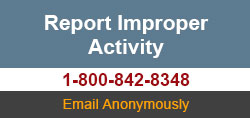
Mike Foley
Frequently Asked Questions - Audit Information
Helpful information and answers to common questions have been included below. This information may be considered a Guidance Document under the Administrative Procedures Act.
This guidance document is advisory in nature but is binding on an agency until amended by such agency. A guidance document does not include internal procedural documents that only affect the internal operations of the agency and does not impose additional requirements or penalties on regulated parties or include confidential information or rules and regulations made in accordance with the Administrative Procedure Act. If you believe that this guidance document imposes additional requirements or penalties on regulated parties, you may request a review of the document. (Neb. Rev. Stat. § 84-901.03)
For County audits, are all county funds required to be presented in the annual county audit? If so, does an auditor opinion need to be given on the statement or schedule that presents these other nonmajor county funds?
1) Yes, Neb. Rev. Stat. § 23-1609 requires the County's annual audit to present ALL county funds. If the County's fund financial statements has a column that combines the nonmajor funds together, the County's audit report must include another type of schedule to comply with State statute. This is often done with a supplementary schedule that is a combining schedule of the nonmajor funds.
2) Yes, an auditor's opinion on this Supplementary Schedule MUST be given in the Supplementary Information section of the Independent Auditor's Report.
Are Budgetary Comparison Schedules required for audits, which present financial statements on an Other Comprehensive Basis of Accounting?
As authorized per Title 41, Nebraska Administrative Code, Chapter 1, the Auditor of Public Accounts requires Political Subdivision audits with financial statements presented on an OCBOA (Other Comprehensive Basis Of Accounting), to include Budgetary Comparison Schedules as Other Information, for the general fund and each major special revenue fund that has a legally adopted annual budget (as described in GASB Budgetary Reporting Codification Section 2400).
When is my audit/audit waiver required to be filed with the Auditors office?
The answer depends on the type of political subdivision
- School Districts are due by November 5th of each year.
- Community Colleges are due by November 15th of each year.
- County, County Hospital, County Nursing Home, and ESU are due 1-year after their fiscal year-end.
- Reclamation Districts are due 120 days (4 months) after their fiscal year-end.
- Housing Authorities are due 9 months after their fiscal year-end.
- All other Political Subdivisions are due 6 months after their fiscal year-end.
Why does the Audit Waiver Request Form Instructions state that the Auditors Office must receive the waiver request within 3 months of the political subdivision’s year-end?
The actual filing deadlines with the Auditors Office are the dates indicated in the previous question/answer. However, the Auditors Office would like the audit waiver requests to be submitted within 3 months of the political subdivisions year-end. This is to allow time to have an audit completed within the filing deadline date, if the audit waiver request is denied and an independent auditors report is required.
Is there a possibility that my political subdivision can still get an audit waiver, even though it is more than three months past the political subdivision’s year-end?
Yes, there is a possibility that an audit waiver can still be granted.
Does a village have the ability to meet its filing requirement by automatically completing an unaudited financial statement or does the village have to request an audit waiver?
With the passage of LB 568 in the 2002 Legislative Session, villages will now have to submit an independent auditors report, unless they have requested a waiver of the audit requirement and received approval of that request from the Auditors Office. This starts for the fiscal year-ending September 30, 2002.
Are there any factors, which determine whether a village will receive approval of an audit waiver request?
There is a review process of the audit waiver request that takes place when approving/denying the audit waiver. One of the main criteria followed, is the dollar amount of total disbursements for the village. Currently the office’s threshold for allowing the audit waiver, is for villages with total disbursements of $500,000 or less. Exceptions for waiver approvals when exceeding $500,000 will be very minimal and generally only considered for debt service type payments.



